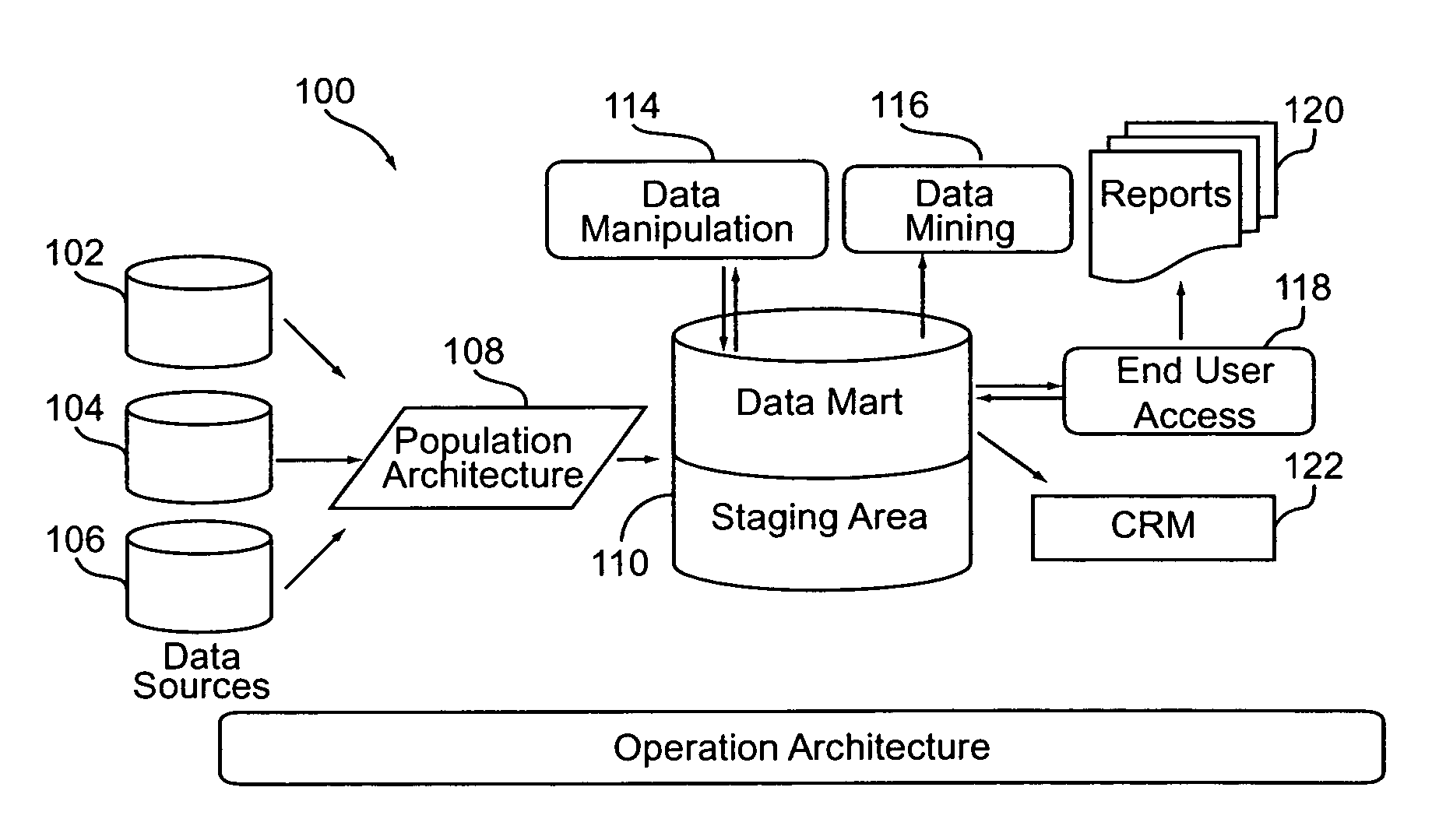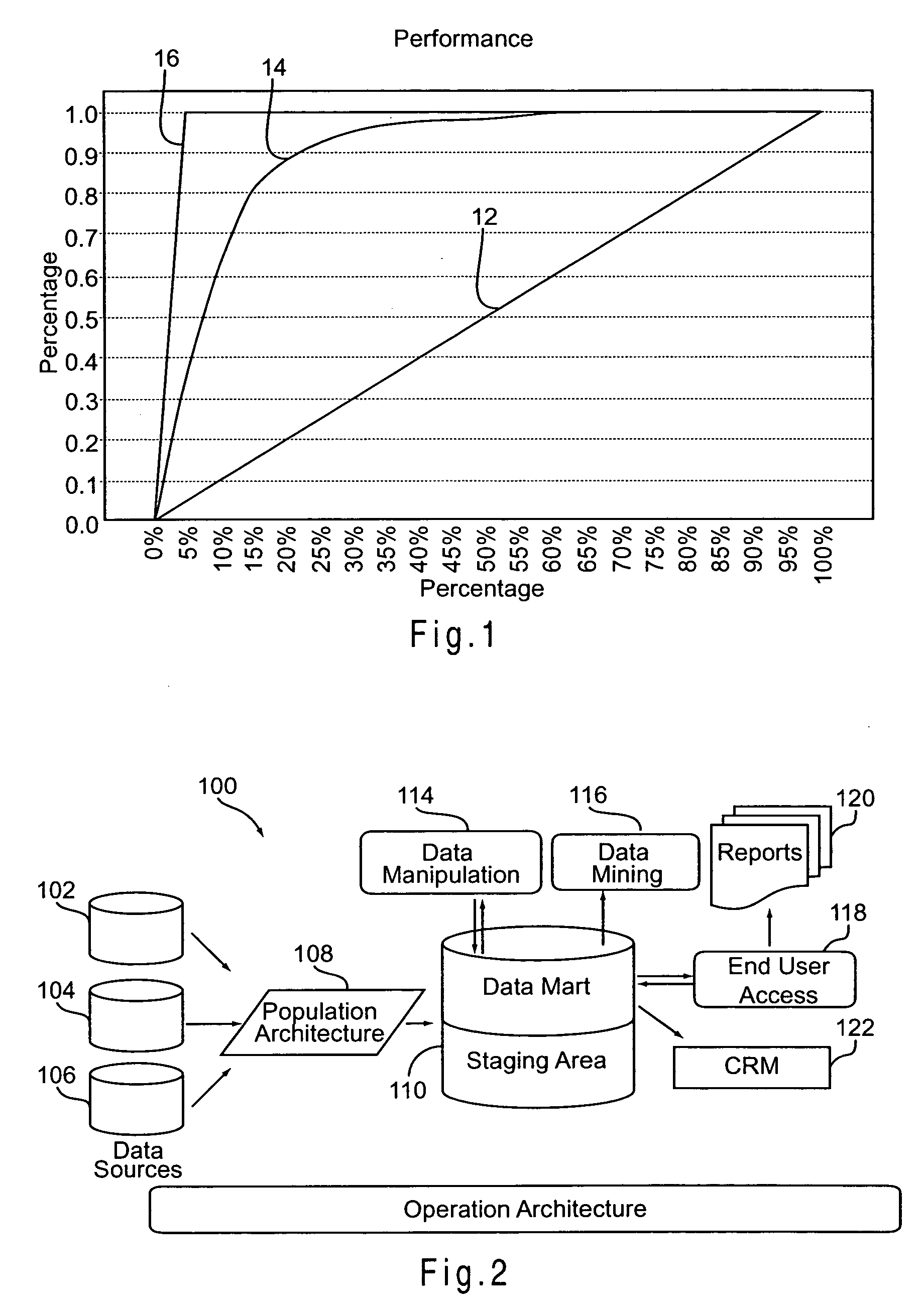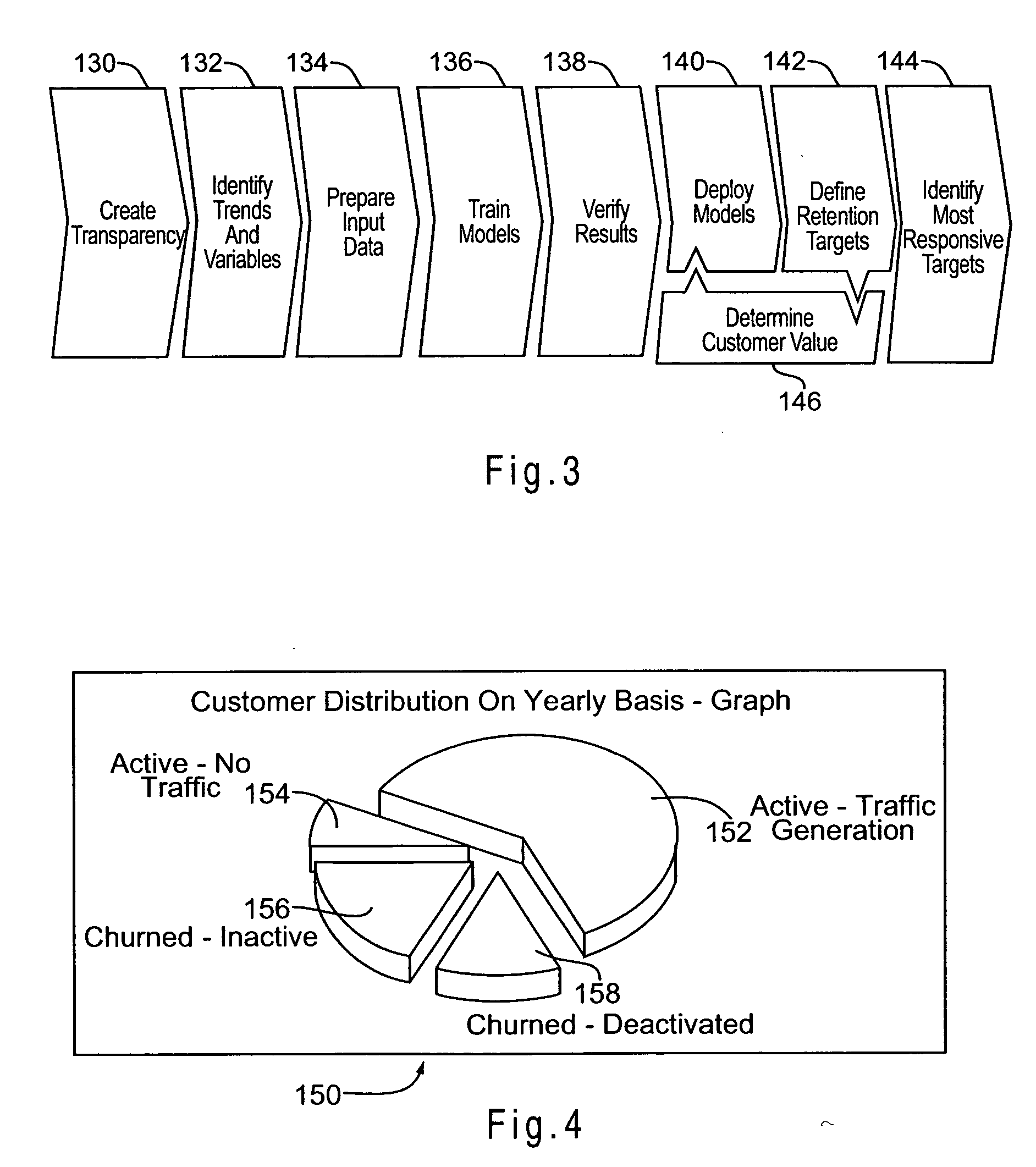Statistical modeling methods for determining customer distribution by churn probability within a customer population
a technology of probability and customer population, applied in the field of statistical modeling methods for determining customer distribution by probability within a customer population, can solve the problems of difficult design of efficient and effective customer retention programs, low tolerance thresholds for churn, and inability to know whether churning is a significant problem, etc., to facilitate efforts to retain high-profitable customers, prevent erosion of customer base, and improve products and services.
- Summary
- Abstract
- Description
- Claims
- Application Information
AI Technical Summary
Benefits of technology
Problems solved by technology
Method used
Image
Examples
Embodiment Construction
[0029]FIG. 2 shows a block diagram of a system 100 for analyzing and predicting churn. The system 100 includes a plurality of data sources 102, 104, 106. A dedicated data mart 110 forms the core of the system 100. A population architecture 108 is provided to perform extraction, transformation and loading functions for populating the data mart 110 with the data received from the various data sources 102, 104, 106. A data manipulation module 114 prepares data stored in the data mart 110 to be input to other applications such as a data mining module 116, and an end user access module 118, or other applications. The end user access module 118 provides an interface through which business users may interact with, view, and analyze the data collected and stored in the data mart 110. The end user access module 118 may be configured to generate a plurality of predefined reports 120 for analyzing the data. The user access module 118 includes online analytical processing (OLAP) that allows a u...
PUM
 Login to View More
Login to View More Abstract
Description
Claims
Application Information
 Login to View More
Login to View More - R&D
- Intellectual Property
- Life Sciences
- Materials
- Tech Scout
- Unparalleled Data Quality
- Higher Quality Content
- 60% Fewer Hallucinations
Browse by: Latest US Patents, China's latest patents, Technical Efficacy Thesaurus, Application Domain, Technology Topic, Popular Technical Reports.
© 2025 PatSnap. All rights reserved.Legal|Privacy policy|Modern Slavery Act Transparency Statement|Sitemap|About US| Contact US: help@patsnap.com



